In this article:
Natural toothpaste refers to toothpaste that is made with natural ingredients as opposed to synthetic or artificial ingredients.
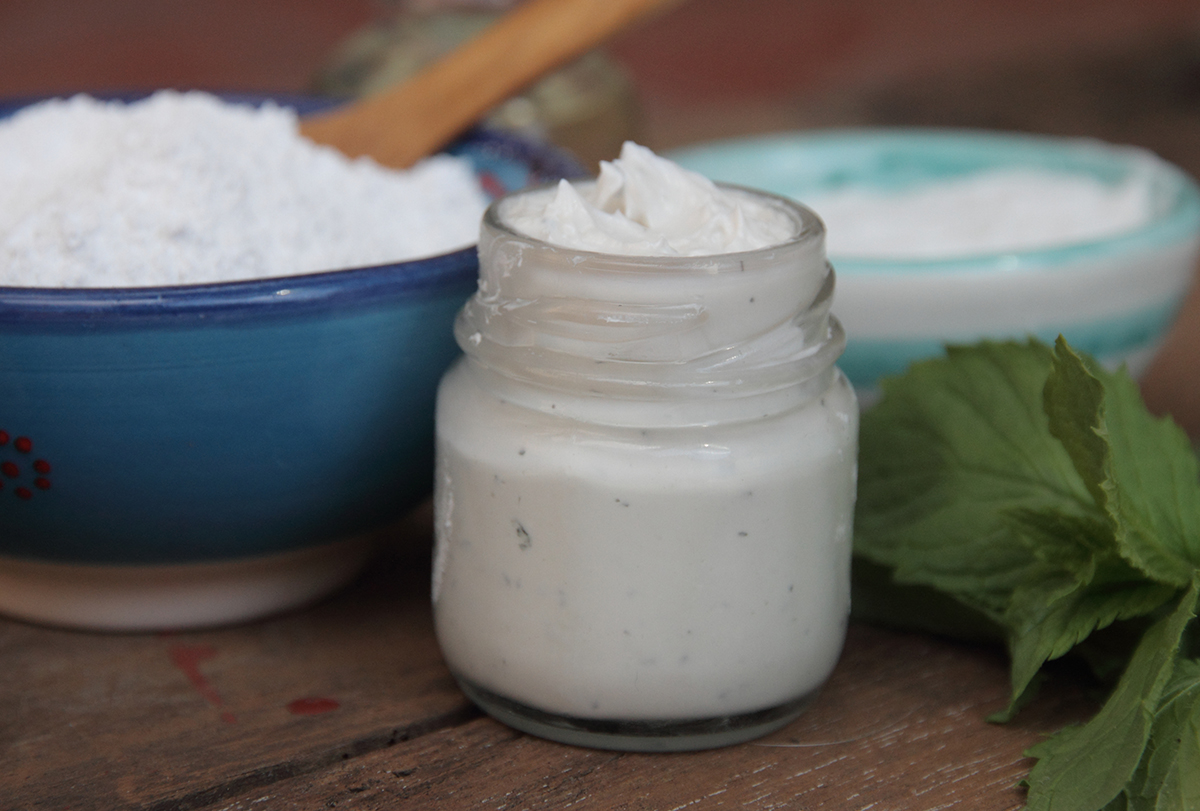
These types of toothpaste are becoming increasingly popular among people who are interested in using natural and organic products to maintain their overall health and wellness.
Recipe for Homemade Natural Toothpaste
Here is a recipe for homemade natural toothpaste that can help to promote oral health:
Ingredients:
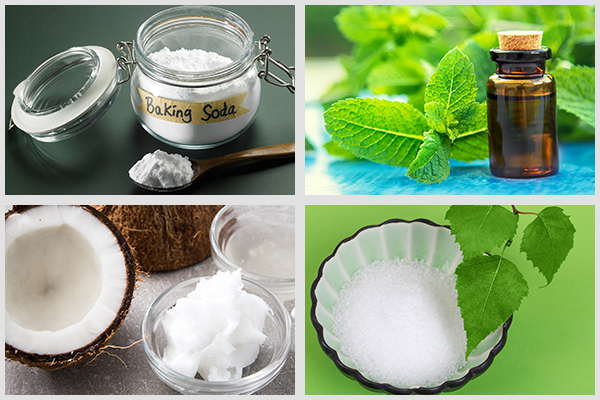
- 2 tablespoons of baking soda
- 1 tablespoon of coconut oil
- 10 drops of peppermint essential oil
- 2 teaspoons of xylitol (optional)
Instructions:
- In a small mixing bowl, combine the baking soda, coconut oil, peppermint essential oil, and xylitol (if using).
- Mix the ingredients until they form a paste.
- Transfer the paste to a small container with a tight-fitting lid.
- To use, simply dip your toothbrush into the paste and brush your teeth as usual.
Note:
- Be sure to use high-quality ingredients, especially if you have sensitive teeth.
- It is always best to use it with the guidance of a dental professional, as overuse of baking soda can erode tooth enamel.
- It’s good to spot-test the toothpaste before brushing the full set of teeth to ensure that it does not cause any irritation or discomfort.
This recipe is simple to follow and the homemade toothpaste can be a great alternative to commercial toothpaste. Using natural ingredients to care for your oral health can also be less harmful to the environment.
Remember that toothpaste is only one part of maintaining good oral hygiene, and it’s important to brush, floss, and visit the dentist regularly.
Benefits of Using Natural Ingredients to Maintain Oral Health
One of the benefits of using natural toothpaste is that it can be gentler on the teeth and gums compared to commercial toothpaste, which may contain harsh chemicals or abrasives. Natural toothpaste is also free of artificial flavors, colors, and sweeteners, which are commonly found in commercial toothpaste. (1)
Another benefit of using natural toothpaste is that it often contains ingredients that have been shown to promote oral health.
For example, some natural toothpaste may contain baking soda, coconut oil, and peppermint oil, which have been shown to have antimicrobial properties and can help to keep the mouth clean and refreshed. Xylitol is another ingredient found in some natural toothpaste that is a natural sweetener and has been shown to reduce plaque and prevent tooth decay. (2)(3)
By using natural toothpaste, you can be assured that you are not exposing yourself to harmful chemicals found in commercial toothpaste and you can avoid the possibility of allergic reactions, irritation, or other issues that may arise from the use of artificial ingredients.
Benefits of Individual Ingredients
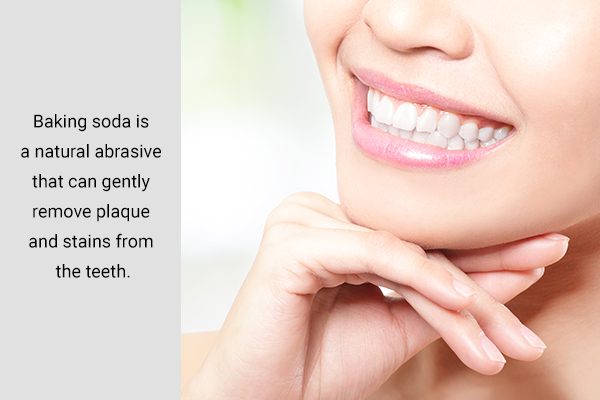
The ingredients used in this recipe for homemade natural toothpaste can provide a number of benefits for oral health:
- Baking soda: Baking soda is a natural abrasive that can gently remove plaque and stains from the teeth. It is also alkaline, which can help to neutralize the acidity in the mouth caused by bacteria, helping to reduce the risk of tooth decay and gum disease. (4)
- Coconut oil: Coconut oil has anti-inflammatory and antimicrobial properties. It can help to reduce the growth of bacteria in the mouth, thereby reducing the risk of tooth decay and gum disease. Additionally, it acts as a natural moisturizer, which can help to soothe dry or irritated gums. (5)
- Peppermint essential oil: Peppermint oil gives a refreshing taste. It also has antimicrobial properties and can help freshen breath by killing the bacteria that cause bad breath. Peppermint oil is also anti-inflammatory, which can help to soothe irritated gums. (6)
- Xylitol: Xylitol is a natural sweetener that can help to reduce plaque and prevent tooth decay. It works by not allowing bacteria to adhere to the teeth and produce acid, which causes tooth decay. It also helps in remineralizing teeth and strengthening tooth enamel. (3)
It’s important to note that while these ingredients can be beneficial for oral health, it’s not guaranteed that they will be effective for everyone. Consultation with a dental professional is always recommended before making significant changes to your oral care routine.
The Importance of Oral Health
Maintaining good oral hygiene is essential for overall health and well-being.
Poor oral hygiene can lead to a variety of dental problems, such as tooth decay, cavities, and gum disease, which can cause pain and discomfort and even lead to serious health issues if left untreated. (7)
Good oral hygiene practices include regular brushing, flossing, and regular dental checkups.
- Brushing your teeth at least twice a day with toothpaste that contains fluoride helps to remove plaque, a sticky film of bacteria that forms on your teeth, which can cause tooth decay and gum disease.
- Flossing helps to remove plaque and food particles that are stuck between your teeth, which cannot be reached by brushing.
- Rinsing with mouthwash can also help to kill bacteria and freshen your breath.
- Regular dental checkups, typically every 6 months, with a dentist or dental hygienist can help to identify and treat dental problems early, before they become more serious. They also provide personalized advice on oral care routine, especially if you have oral issues such as sensitive teeth, receding gums, or other problems.
Maintaining good oral hygiene can also have a positive impact on overall health. Gum disease has been linked to a number of serious health conditions such as heart disease, stroke, and diabetes. Bacteria that cause gum disease can enter the bloodstream and cause inflammation throughout the body, which can contribute to these conditions. (8)
Therefore, to have a healthy body and mind, it is important to pay attention to your oral hygiene.
Potential Risks of Using Commercial Toothpaste and Why Some People Make Toothpaste at Home
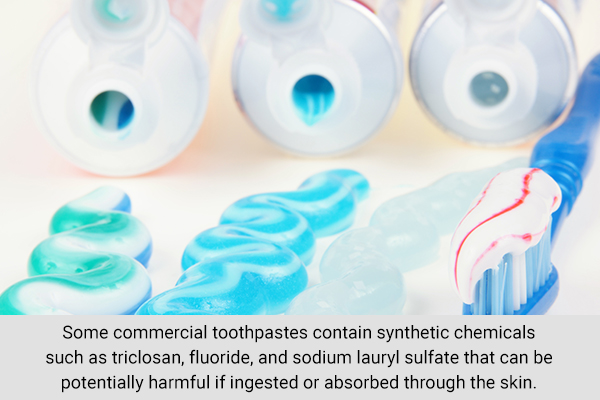
While commercial toothpaste can effectively clean the teeth and promote oral health, it may also contain ingredients that some people prefer to avoid. Here are a few potential risks of using commercial toothpaste:
- Synthetic chemicals: Some commercial toothpaste contains synthetic chemicals that can be potentially harmful if ingested or absorbed through the skin, such as triclosan, fluoride, and sodium lauryl sulfate. Long-term exposure to these chemicals can lead to irritation or other issues. (9)(10)
- Artificial flavors, colors, and sweeteners: Many commercial toothpaste preparations are formulated with artificial flavors, colors, and sweeteners that can be harmful to some people. Some people may be allergic or sensitive to these additives, and in some cases, these additives can cause health issues.
- Microbeads: Some toothpaste contains plastic microbeads that are used as an abrasive. These microbeads may not be effectively removed by wastewater treatment and can end up in oceans and rivers, causing harm to marine life. (11)
- Animal testing: Many toothpaste products are tested on animals, which can be a concern for some people.
Due to these and other concerns, some people choose to make their own toothpaste at home using natural ingredients that they can trust.
Homemade toothpaste can be made with ingredients such as baking soda, coconut oil, and essential oils that are known to be gentle and effective at promoting oral health. These ingredients are also easily available and affordable, and making your own toothpaste at home can save money in the long run.
Additionally, making your own toothpaste allows you to customize the recipe to suit your specific needs. For example, if you have sensitive teeth, you can avoid using ingredients that may irritate or harm them.
It is important to keep in mind that just like any other product, the effectiveness of homemade toothpaste may vary from person to person, and it is always recommended to check with a dental professional before making any significant changes to your oral care routine.
Most-Asked Questions About Using Natural Toothpaste for Oral Care
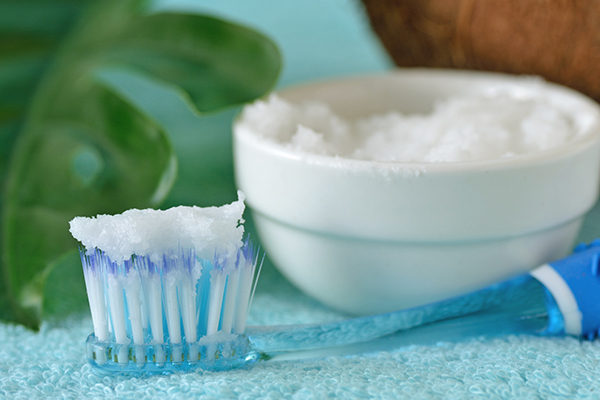
Is natural toothpaste as effective as commercial toothpaste?
Natural toothpaste can be just as effective as commercial toothpaste when it is formulated with the right ingredients and used in the correct way.
It is important to note that effectiveness can vary depending on the individual, and it is always best to consult with a dental professional before making significant changes to your oral care routine.
Does natural toothpaste contain fluoride?
Some natural toothpaste preparations contain fluoride, while others do not.
Fluoride is a mineral that helps to strengthen tooth enamel and protect against tooth decay, but it can also be controversial, so many natural toothpaste manufacturers opt not to include it in their ingredients.
It’s always a good idea to check the label if fluoride is an important factor for you in your toothpaste choice.
Can I use natural toothpaste for sensitive teeth?
Some natural toothpaste products are formulated specifically for sensitive teeth and may include ingredients that help to soothe and protect sensitive teeth and gums.
However, it’s highly advised to check the label and consult with a dental professional before making significant changes to your oral care routine, especially if you have sensitive teeth.
Is natural toothpaste safe for children to use?
Most natural toothpaste preparations are safe for children to use, but it’s always best to consult with a pediatric dentist or a pediatrician before introducing any new oral care products to children.
Can I use natural toothpaste while pregnant or breastfeeding?
Most natural toothpaste preparations are safe to use while pregnant or breastfeeding, but it’s highly recommended to consult with a dentist or obstetrician before making significant changes to your oral care routine.
Final Word
Making your own natural toothpaste has many benefits. By using natural ingredients, you can ensure that you are not exposing yourself to potentially harmful chemicals found in some commercial toothpaste.
Additionally, it can be gentler on the teeth and gums. You can customize the recipe to suit your specific oral care needs, such as if you have sensitive teeth or gums or if want a specific flavor and texture of toothpaste. It also allows you to have control over what you are putting in your body.
Making your own toothpaste can also be a cost-effective alternative and an eco-friendly choice as it reduces packaging and waste. It is always important to keep in mind that toothpaste is only one aspect of maintaining good oral hygiene, and it’s important to brush, floss, and regularly visit a dental professional. (7)
- Was this article helpful?
- YES, THANKS!NOT REALLY


